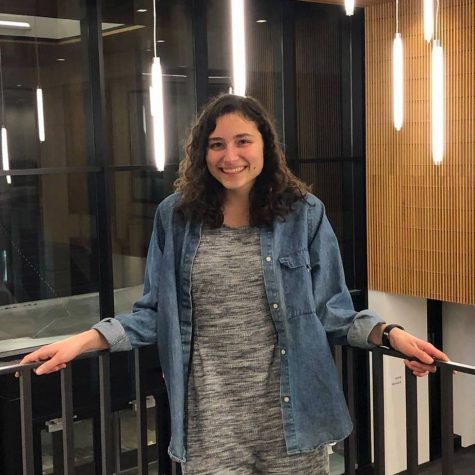Students lead class that explores Palestine resistance
February 6, 2020
A junior international student at Macalester from Palestine has noticed a trend: the college offers very few courses on Palestine.
“Even in the courses that I took, whenever Palestine is mentioned, people try not to talk about it, or avoid talking about it, because they don’t want to make any comments that might offend someone,” she said.
The student asked to remain anonymous out of concern for her student visa.
This semester, though, one such class is being offered: “Palestinian Resistance: Exile, Memory and the Struggles for Freedom.” The two-credit seminar course is unusual; although classics professor Andrew Overman is listed as the instructor on the class schedule, a group of students wrote the syllabus and are leading the class.
After helping with a Fall 2019 International Roundtable panel, the idea for the student-taught class started gaining traction; Overman and the student collaborated and started planning the class, along with help from members of MacSUPER and Jewish Voices for Peace. She is now facilitating the class along with three other students — Nada Petrovic, Fatiya Kedir ’21 and Steven Andrews ’21.
The students plan to spend the first meeting of the class reading about and discussing the history of the conflict between Israel and Palestine. After that, the class will focus on current events and contemporary questions that students want to discuss.
“Our goal… is to kind of give everyone the resources they need to understand the Palestinian perspective and understand what is going on in Palestine, and by building this foundation first, it will allow for discussion for the students to actually create their own perceptions of the issue,” Petrovic said.
Student-taught classes are unusual at Macalester, though Overman and others in the classics department have helped organize similar two-credit seminars in the past.
“Over my years at Mac, student run conferences and orgs have often been among the very best educational experiences that have occured,” Overman said in an email to The Mac Weekly. “They are open and dialogical. Students are open to one another, listen I think very well to one another, and help each other learn.”
The student teachers of the Palestinian resistance class hope that this style might encourage participation.
“To make it more comfortable for students to share, I think it’s better to make it students just talking and discussing more than just the professor giving information to everyone,” the junior student said.
Petrovic mentioned the value of learning from an international student from Palestine.
“Macalester is so international, you can really use the different perspectives to show the story,” Petrovic said. “That’s something that a professor can’t really give you.”
While the student teachers have generally found conversations in classes on Israel and Palestine to be tense and reserved, they emphasized that the current political climate makes having these conversations more important than ever.
In December, President Trump signed “Executive Order on Combating Anti-Semitism,” which specifically states that it will target anti-semitism on college campuses. The order caused controversy, as groups that are pro-Palestine or critical of Israel speculated that it was aimed to curtail this type of activism.
“I think we felt right now — this moment — with our government in Washington and the current administration in Israel there is little attention being paid to Palestine, to Palestinians who are struggling and suffering a great deal right now,” Overman said.
The student teachers left the first class excited for the conversations that seemed to be starting.
“Even in the first class, I could see that students were opening up a lot more and sharing more… people actually wanted to tell stories and ask questions about each other, which I’ve never seen in any class,” Andrews said.
23 students came to the first class and so far, 18 have registered. Although this was planned as a one-time course offering, the student teachers hope that the building interest in the class will help create future classes on the topic.
“I feel like if we show that a lot of students are actually interested in this topic, that’s one of the main motives for other professors to adopt this class,” the junior said.
“I talked to one of the professors who used to focus a lot on this issue and stopped doing it because students stopped participating, but I think if we showed them, ‘here are the records, we had 18 or 19 students in this class focusing only on this issue,’ it means you have a lot of students interested,” she said.













